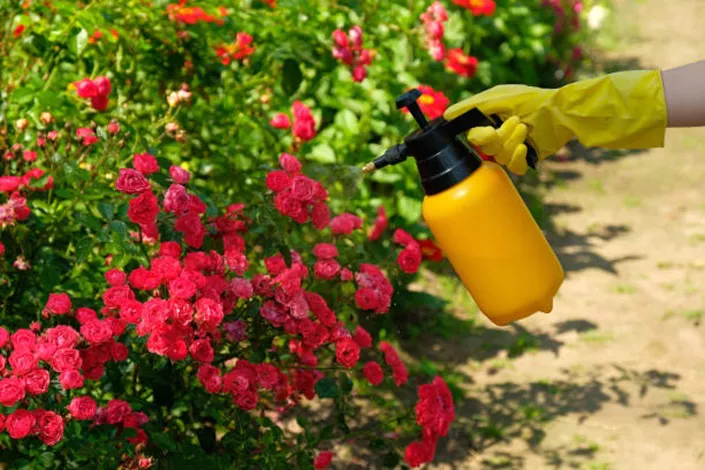Roses are cherished for their beauty and fragrance, but they often attract various pests that can hinder their growth and bloom. Selecting the right insecticide is crucial to protect your roses effectively. Below is a detailed guide to some of the best bug killers for roses, listed in descending order of preference.
1. Fertilome (11207) Tree & Shrub Drench
This systemic insecticide contains Imidacloprid, which is highly effective against Japanese beetles—a common and destructive pest for roses. Once applied to the soil, the plant absorbs the chemical, providing long-lasting protection from the inside out. Users have reported significant reductions in beetle damage within days. However, it’s essential to follow the application instructions carefully, as systemic insecticides can affect pollinators.
2. Bonide Mite-X Insecticide and Miticide
Formulated with botanical extracts like cottonseed, clove, and garlic, this ready-to-use spray is effective against aphids, spider mites, and other tiny pests. Gardeners appreciate its pleasant smell and plant safety. While it may be on the pricier side, its efficacy justifies the cost.
3. Searles Rose Pro Insect & Disease Spray
An all-in-one concentrate, this product targets a broad range of insects, including aphids, thrips, caterpillars, budworm, two-spotted mites, and whiteflies. Additionally, it offers systemic control of fungal diseases like black spot, powdery mildew, and rust. For optimal results, apply as directed and avoid use on edible plants.
4. Insecticidal Soap
Comprising potassium salts of fatty acids, insecticidal soaps disrupt the cell membranes of soft-bodied pests such as aphids, whiteflies, spider mites, and thrips. Direct contact is necessary for effectiveness. It’s advisable to test on a small area first, as some plants may be sensitive.
5. Neem Oil
A natural product derived from the neem tree, neem oil is effective against aphids, whiteflies, thrips, and spider mites. It also aids in controlling certain plant diseases. Ensure thorough coverage during application, especially on the undersides of leaves.
6. Pyrethrin
Extracted from chrysanthemum flowers, pyrethrin provides rapid knockdown of various insects, including aphids, whiteflies, thrips, spider mites, rose slugs, cucumber beetles, and Japanese beetles. However, its residual activity is short-lived, and insects may recover, so repeated applications might be necessary.
7. Spinosad
A microbial insecticide, Spinosad is particularly effective against thrips, caterpillars, and rose slugs. It’s available under various brand names and is approved for organic gardening. Apply as directed for best results.
8. Malathion
A traditional insecticide, Malathion is useful for controlling aphids and certain beetles. However, there may be more effective options available for roses, and it’s essential to consider its impact on beneficial insects and the environment.
9. Horticultural Oils
These oils smother pests like spider mites and aphids. They are best applied during dormant seasons to avoid harming active plant growth. Ensure proper application to prevent potential plant damage.
10. Homemade Remedies (Use with Caution)
Some gardeners opt for homemade solutions like soapy water sprays. While these can be effective against certain pests, they may also harm plants if not used correctly. It’s advisable to test any homemade remedy on a small section of the plant first and consult reliable sources before widespread application.
Conclusion
Protecting roses from pests requires a combination of vigilance, proper identification, and the appropriate use of insecticides. Always follow label instructions, consider the impact on beneficial insects, and integrate cultural practices to maintain healthy, pest-resistant rose bushes.
Related Topics:


